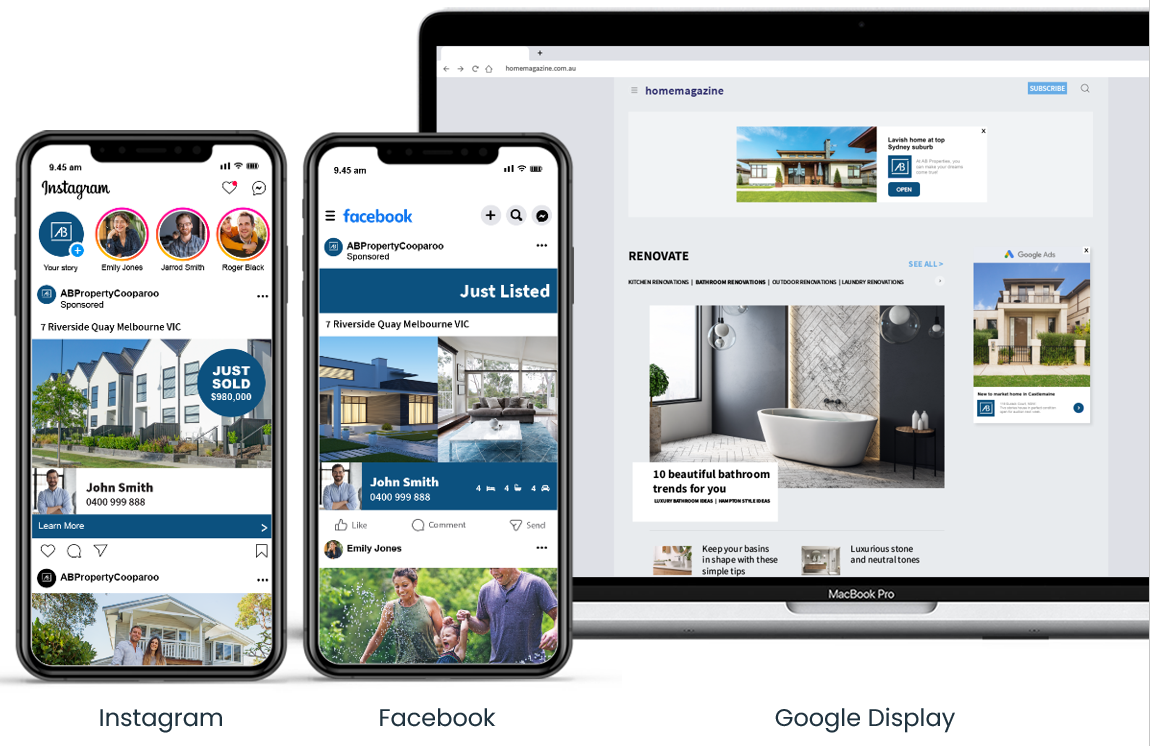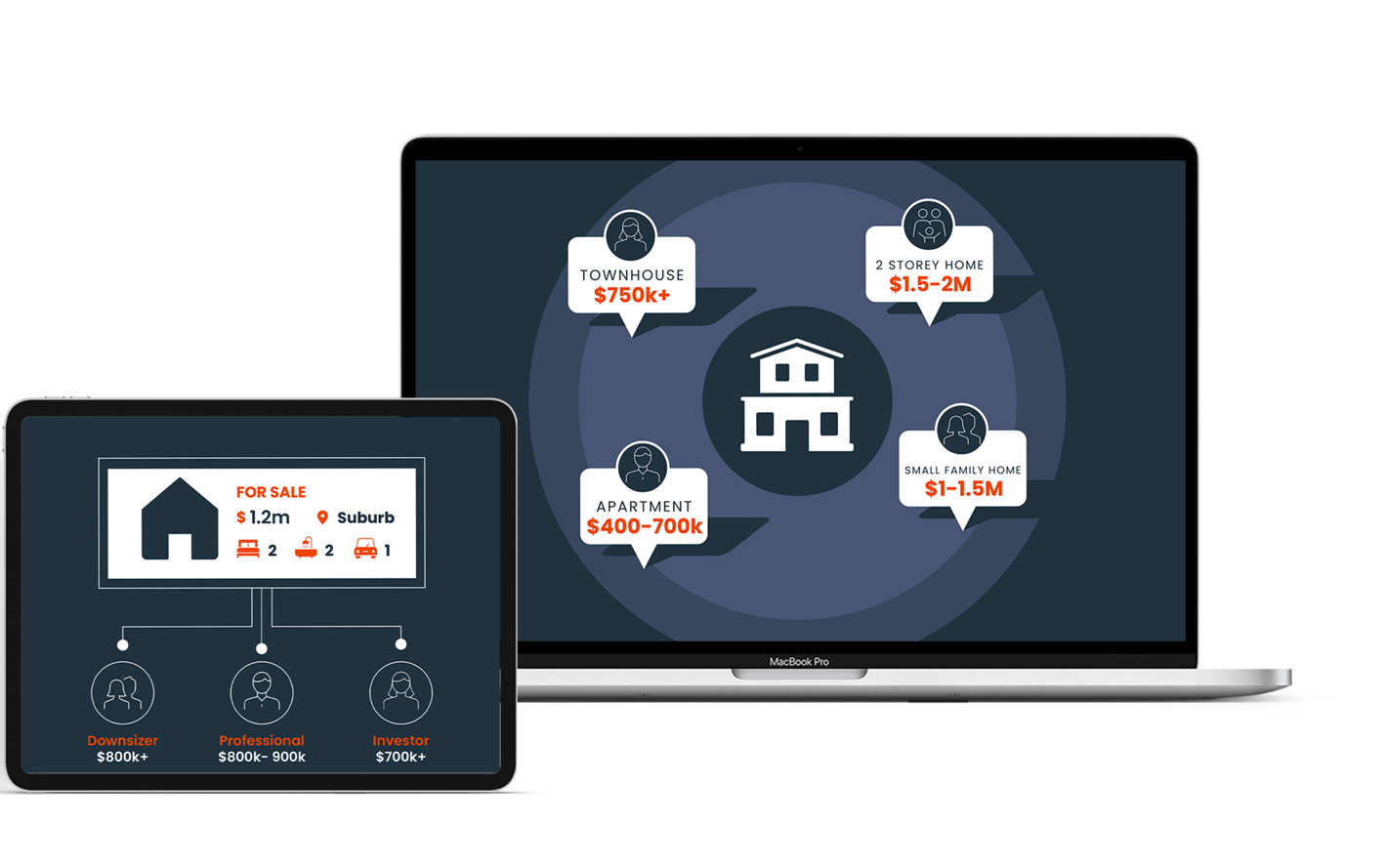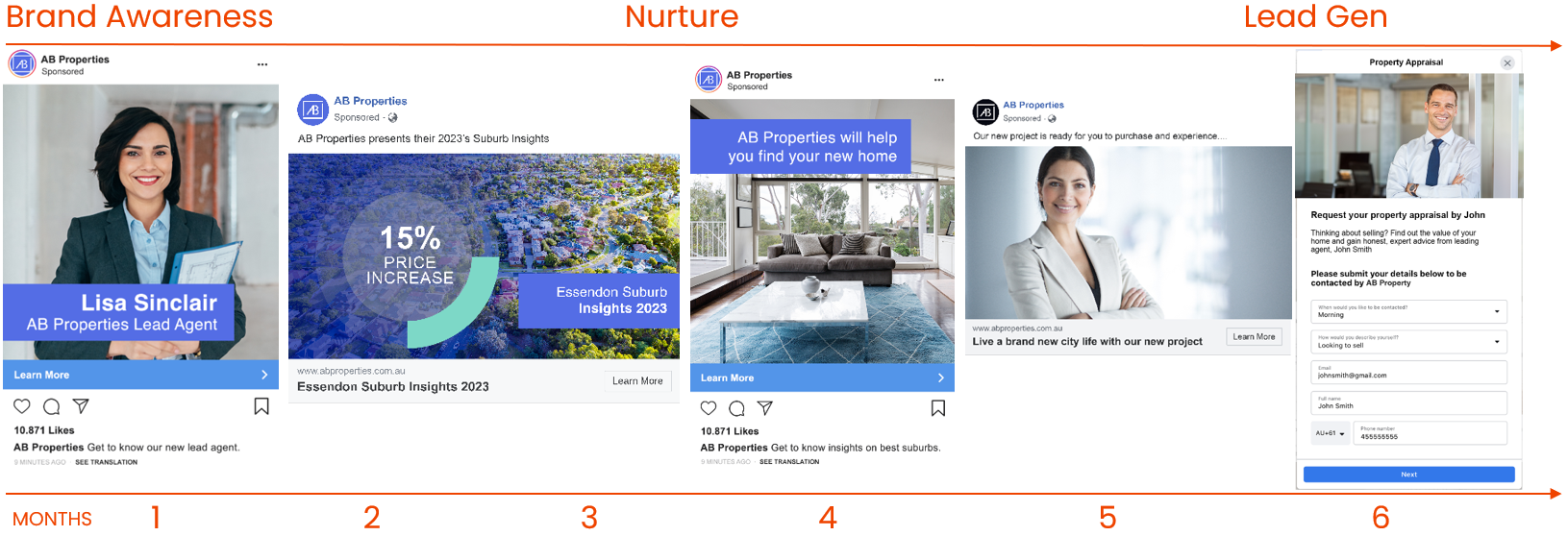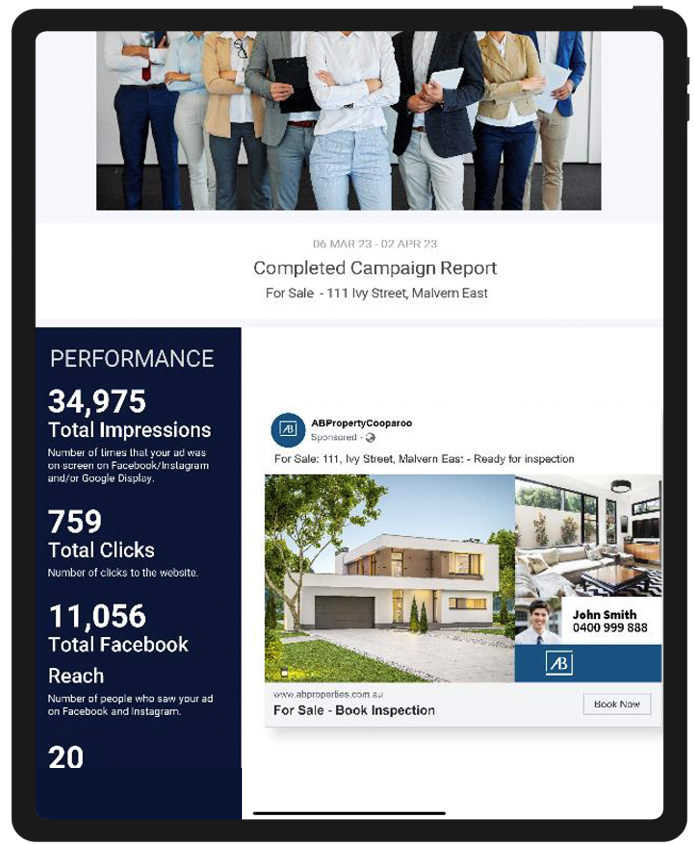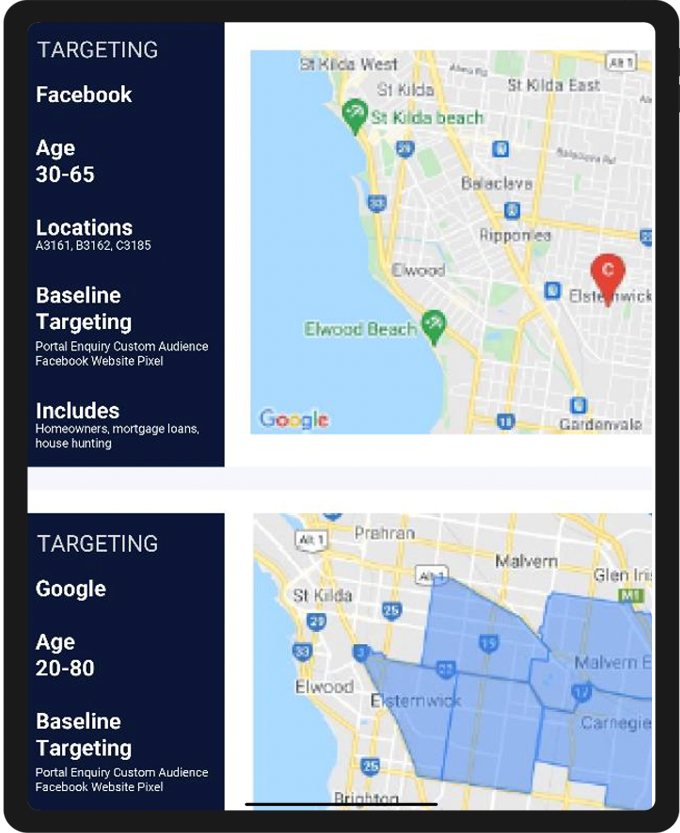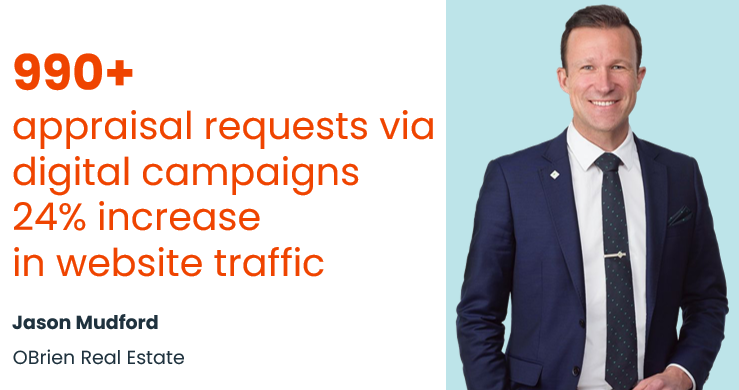Introduction - (Page 1 of 7)
How do agents achieve social media success?
In the real estate market, the shift towards online advertising has become non-negotiable for high-performing agents.
More agents are leveraging digital platforms as they recognise the power of connecting with the right audience at the opportune moment in their buying journey.
These agents don’t gain this competitive edge by accident or magic, it’s achieved via crafting relevant and engaging content that helps them reach new potential buyers and sellers.
This e-book is your essential guide to understanding the property industry’s latest digital marketing trends and tools. Consider it your blueprint for how to capitalise on the undeniable benefits of social media advertising.
The social media platform of choice
According to The State of Digital in New Zealand report by DataReportal, there are 4.13 million social media users in January 2024, equating to 78.7% of the total population. Facebook dominates the social media usage with over 3.30 million users in early 2024, followed by LinkedIn with 2.80 million users*. But what does this mean for real estate professionals? Let’s look at the latest statistics below as of early 2024.

The agent's guide to social media ad success (Page 2 of 7)
Why Digital Marketing matters in the Real Estate industry
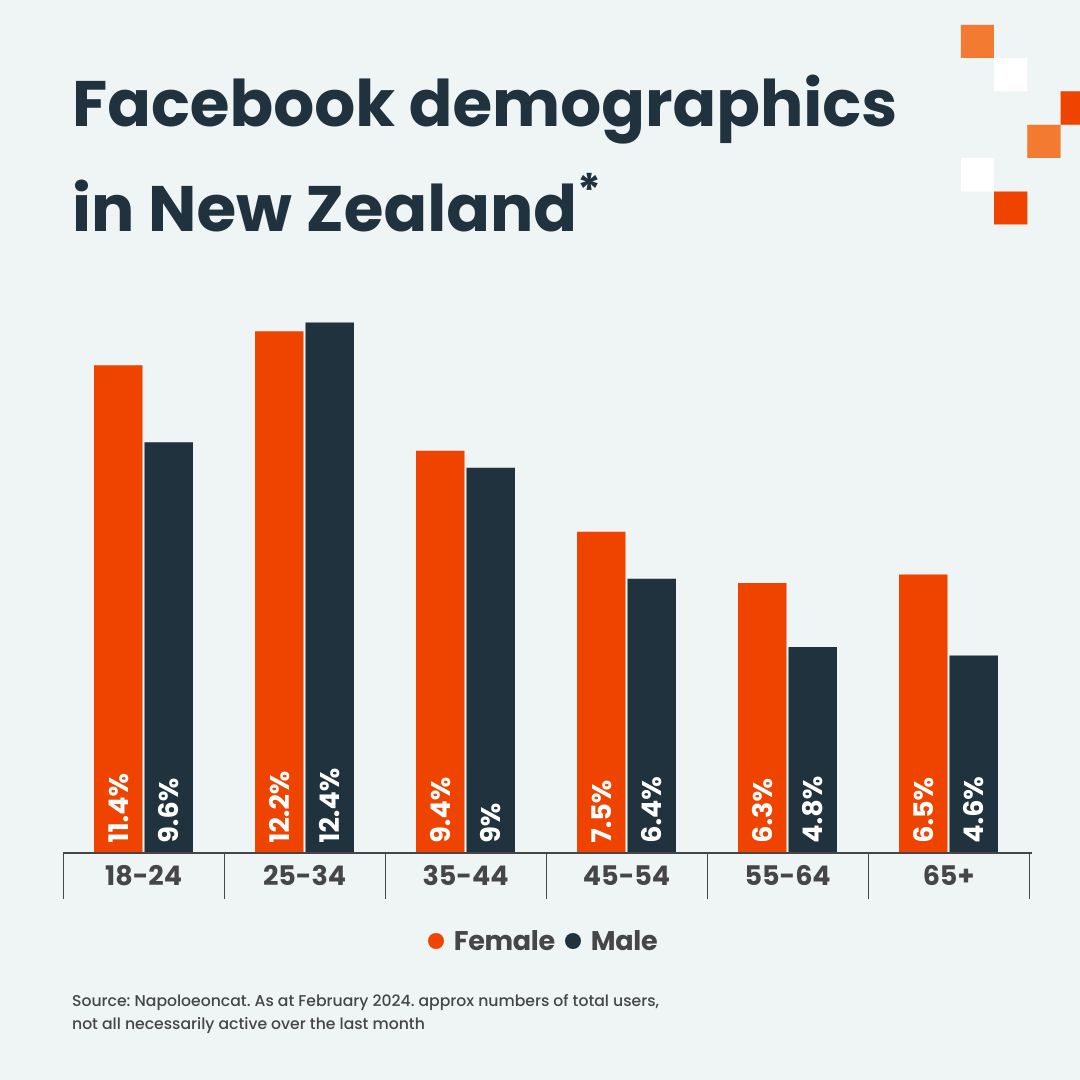
The statistics above ultimately show strong opportunities for both brands and advertisers. For real estate agents and professionals, it is important to have continuous presence across the different channels, however, it is important to first prioritise defining your target audience.
You might find throughout your online advertising that home buyers in New Zealand might be around the age of 25-34 and sellers on the other hand might be around 35-44. This means that Facebook might be your key platform to focus on your online presence. Understanding your target audience can help you prioritise efforts when doing digital advertising.
Why Digital Marketing matters in the Real Estate industry (Page 3 of 7)
Benefits of having a strong digital presence in real estate
- Reach a wider audience – There’s an average of 3.3 million active users on Facebook in New Zealand alone. By leveraging your brand or property listings through social media and Google ads, you can reach a larger pool of audience and be seen by potential buyers. Digital advertising is considered one of the most cost-effective ways to increase brand visibility, generate leads, and engage target audiences on a global scale.
- Data-driven insights – Another powerful feature of digital advertising is the ability to track the performance of your digital ads in real time. This helps in understanding advertising metrics such as spend, audience targeting and creative performance. You may find an ad not performing to your expectations, and modifying it in real time will help you save advertising budgets in the long run and achieve a more effective ad.
- Creative engagement – To capture the attention of your audience and potential buyers online, there are now variety of options to choose from. Creative engagement allows brands to stand out from competition, foster trust, and encourage participation from the audience.
- Continuous shift in market trends – It is now becoming common knowledge that social media and Google continuously work to update their algorithms. This means that what probably worked yesterday might not work today or in the future. Brands and real estate professionals need to stay abreast with the latest trends to stay relevant and be ahead of the competition.
The agent's guide to social media ad success - (Page 4 of 7)
Is your content getting cut through? Here's how to boost your online presence
Digital marketing allows you to showcase different ad content to achieve various real estate marketing goals. Facebook and Google’s extensive targeting options enable advertisers to reach specific demographics, interests, and behaviours. Here's an overview of the different type of ads you can do to boost your real estate presence:
- Just Listed ads – Showcase your latest listings as part of your Vendor Paid Advertising (VPA). This content can help you drive buyer enquiries, find new buyers in your local area, and reach more people who might not be on the other popular listing portals. You can also boost your brand presence in the process.
- Just Sold – Demonstrate your success by showcasing successfully closed deals and attract potential clients who are looking to sell. You can also target potential buyers who may be interested in similar properties in the area.
- Market Insights – Demonstrate your knowledge and be top of mind when it’s time for a vendor to sell by sharing local market knowledge and insights. These types of ads can help you become the trusted agent in your local area by showcasing market trends, pricing, and preferences that can help inform their next decision.
- Agent intro – Build the brands of your agency and your individual agents in your local market by showcasing them in your ads. Showcase your track record, achievements, and expertise in the market to help gain the trust of your future buyers and sellers.
The agent's guide to social media ad success - (Page 5 of 7)
Tips on how to craft a compelling ad
There are many ways to reach your target audience through digital advertising as we’ve outlined above. The most important question is how and where do you start? Here are practical tips to help you get started.
- Define your goals and objectives – When you’re thinking of putting up an ad, the desired outcomes could mean different things. Metrics such as awareness, reach, leads, and engagement are all drivers to help drive traffic to your website. Once you define what your goals are, it is easier to choose the ad formats and platforms you wish to advertise.
- Target audience – Defining your target audience is one of the most important things when setting up an online ad. Information such as age, location, and interests are all important so you can target the audiences with the same preferences and needs.
- Content & Messaging – Communicating the value of the product or services you’re offering is important in building trust from the audience you’re targeting online. The right messaging can define your brand’s identity and drive the right audience to your profile. Depending on your goal, it is always helpful to show customer reviews, research trends, and other information that will provide value to your target customers. The goal of your content is for them to keep coming back for more whether it is to educate, entertain or sell.
- Creative – Research* shows that it takes 1.7 seconds for brands to get viewers’ attention on social media. That is merely 2 seconds to get users to digest your brand message and content. Creative assets are important when building a compelling ad because it is the primary touch point of the user. Highly visual ads in different formats such as videos, animation and creative images combined with strong headlines are key elements to grab audience attention. A/B testing ads in different sizes are also important to understand which works best for long term cost-efficient campaigns.
- User experience – This one goes hand in hand with your targeting. The more targeted your ads are, the more the audiences will find your ads relevant, and thus lessen the risk of it being reported by the user as irrelevant.
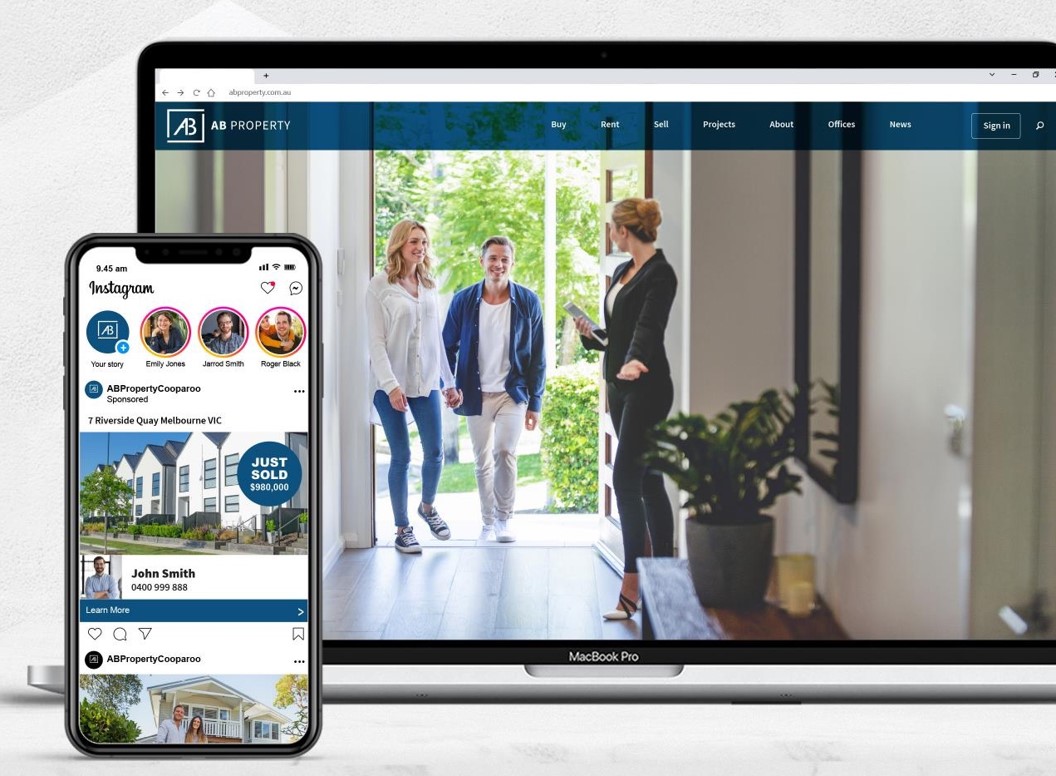
The agent's guide to social media ad success - (Page 6 of 7)
Why is audience targeting important in real estate ads?
One of the most critical steps when setting up an online ad is getting the targeting right. Targeted ads are important to reach the right audience who are potentially looking for the products or services you are offering. Part of the success of your campaign relies on how targeted your ads are. Metrics such as demographics, interests, location, gender, and other preferences (e.g. similar pages they follow) will help the performance of your ad in reaching the relevant audiences for your brand. A targeting sample on Facebook looks like this:
| Age: 25-45 y/o |
|---|
You can further narrow down your targeting based on your objectives and goals. A simple as micro targeting the location you want to cover will be a good test on how many people your ad can potentially reach.
Getting targeting right is one of the most cost-effective way to run online ads
Once you discover your engaged target audience, you can focus on other important aspects of the campaign such as A/B testing your creative ads, improving messaging, and a strong call to action.
To be able to achieve an effective and targeted ad, advertisers collect# different types data. This information is then used to feed information back to your ad campaign online which you can leverage to reach buyers who are potentially looking for the same product or service.
#Collection of data is depending on user consent. It is important for businesses and marketers to be aware of the rules and regulations regarding data collection.
Types of data
Contextual data – Contextual data refers to background information that is used to frame a user’s knowledge in bigger picture. It is used to analyse customer behaviour patterns and improve their experience through which an ad is displayed. It doesn’t rely on user’s information or browsing history or what we call ‘cookies’. | |
|---|---|
First-party data – First party data is collected upon user’s consent via website forms, website analytics tools, or social media lead gen forms. For real estate companies, your first party data would be the data you have in your CRM, those who have attended your Open for Inspections, and those who have enquired on your past properties. Based on the information collected such as email address, age, marital status, and location, you can use this to segment audiences and create targeted content tailored to user’s preferences. | |
Third party data – Collected through advertising cookies, third party data is anonymised data which collects information such as pages visited, session length, bounce rate and user conversion information. Third party data are tracked so that advertisers can provide personalised ads for their products and services based on the user’s browsing history activities. |
The agent's guide to social media ad success - (Page 7 of 7)
A digital advertising blueprint for real estate agents
Discover the ease of automating your campaigns, saving valuable time while ensuring consistent and impactful social media presence with Plezzel.
What is Plezzel
Plezzel makes real estate digital advertising simple. Our team of in-house digital experts create and manage your custom social media campaign and Google display ads for you, your listings and agencies, allowing you to focus on what you do best; list and sell properties.
How it works
When you subscribe to Plezzel, you will have a dedicated campaign manager overseeing your ads from launch to post-campaign reporting. Features such as custom branded templates can be applied to your Just Listed and Just Sold ads, including a precise audience targeting, achieving a unique and personalised touchpoints throughout the entire campaign.
Branded templates
- Styled to your Brand
- Body text
- Image template
- Headline
- Call to Action Button
Powerful audience targeting
Designed to harness the potential of your first-party data, Plezzel can integrate with your CRM and popular property listing platforms to transform your audience insights into smart, targeted campaigns. Effortlessly capitalise on your CRM data and Open For Inspection details to build audiences with genuine interest in the property market across Facebook, Instagram and the Google Display Network.
Plezzel utilises this rich audience data to craft 'Look-a-like' audiences, expanding your reach to connect with users who share similar characteristics or interests. To elevate precision even further, Plezzel adopts a layered, targeted approach. By considering factors such as geographic location, age, affluence, and interests, Plezzel identifies your ideal audience.
Imagine targeting a buyer interested in $700,000 properties, aged 28 years or more, working in Auckland CBD, and commuting daily. That’s the power of Plezzel.
Campaign Strategy
When you use Plezzel, a dedicated campaign manager is by your side, ensuring that every ad consistently aligns with your unique brand, covering everything across:
- Ad deployment
- Ad optimisation
- Customisable branded ad templates
- Customisable and automated enquiry responses
The agent's guide to social media ad success - (Page 7 of 7)
Automated email campaigns
Keep in touch with potential buyers at each stage of the sales lifecycle.
Reporting & Insights delivered to your inbox
Plezzel also takes care of your campaign's performance. Forget about digging around for insights and interpreting complex analytics. Mid-campaign and post-campaign reports are sent directly to your inbox and are available via an intuitive online dashboard.
|
|
|---|
